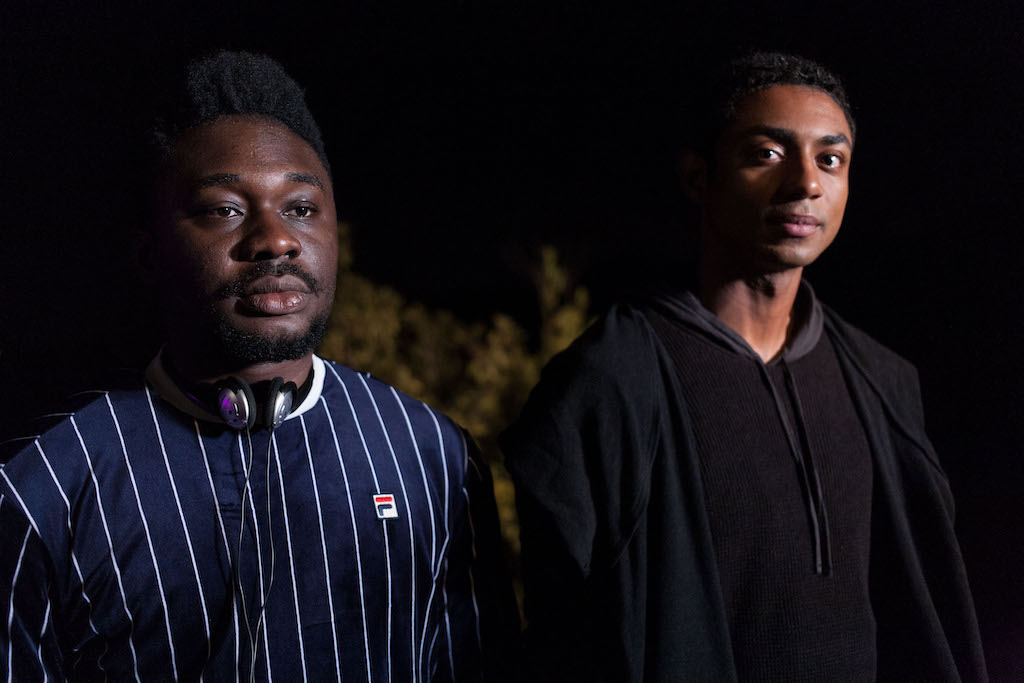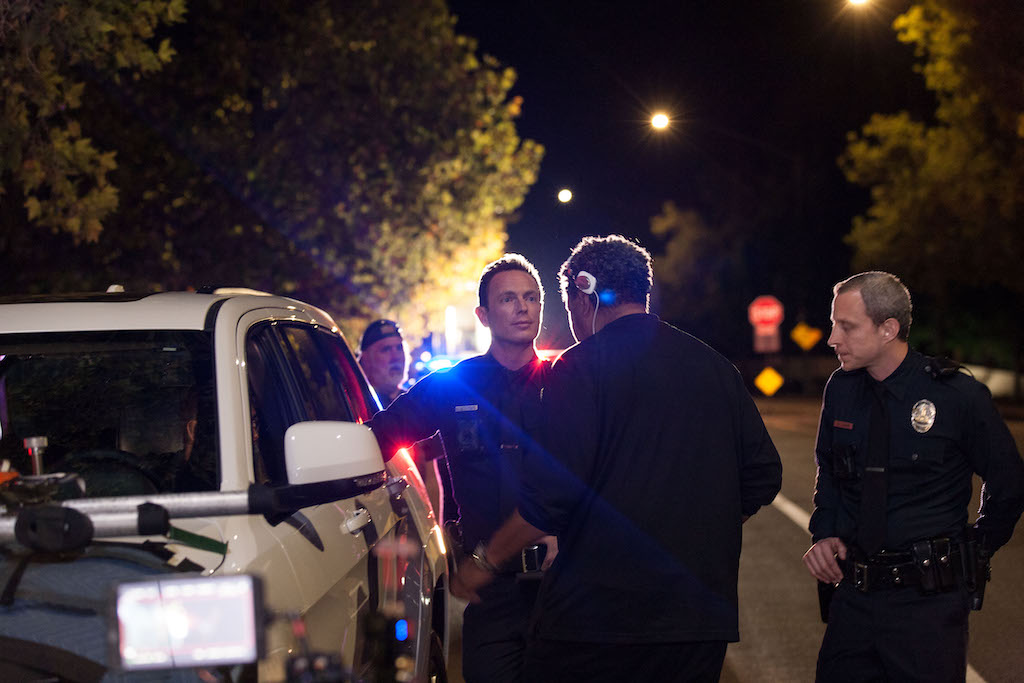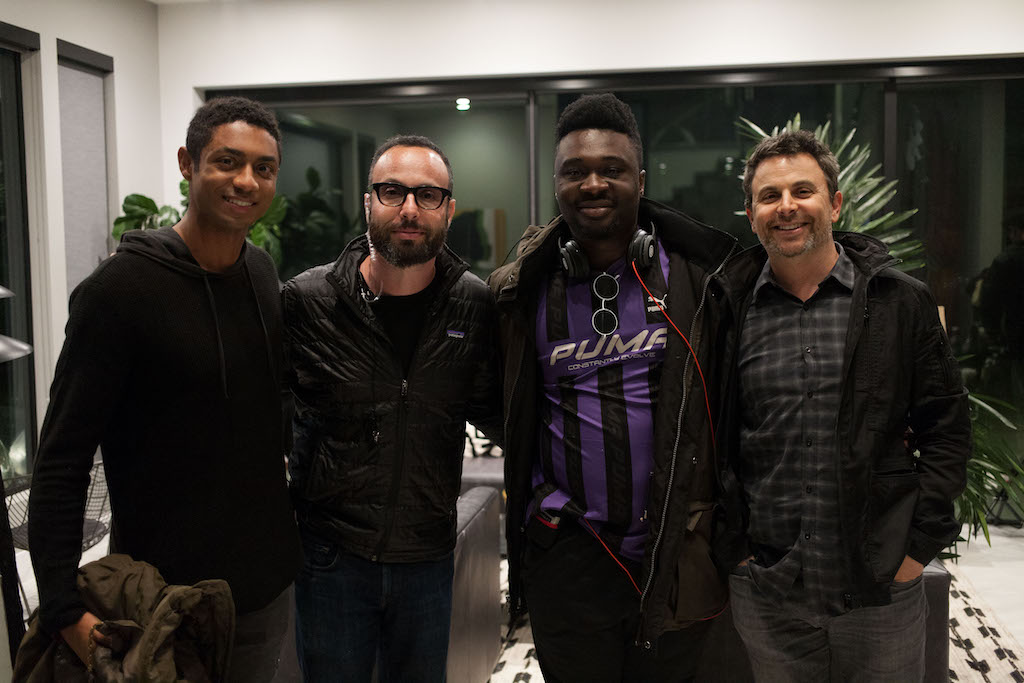
Written By Anna Buckley
The day that USC student Stanley Kalu opened up an email about a competition called “The LAUNCH” was just another average day. He didn’t know that the creators of this competition would choose his screenplay. That day, he simply read about the competition, decided to apply, and set in motion a chain of events that would make his million dollar dreams a reality — and on the silver screen, no less.
The LAUNCH is a Million Dollar Screenplay Competition for college students. It enables one talented screenwriter to realize their filmmaking dreams by turning their screenplay into a feature film — with a budget of at least $1,000,000. Though there’s only one winner, the top three finalists receive an offer of literary representation at a Hollywood talent agency and management firm. The top eight finalists are awarded a total of $100,000 in education grants and other prizes.
The LAUNCH Million Dollar Screenplay Competition is a first of its kind competition co-founded by producers Zachary Green and Jason Shuman and philanthropists Chuck and Marni Bond, to find the next generation of great screenwriters from around the world.
Kalu, the winner of the first LAUNCH competition, decided to apply because he had written something he believed in: “The Obituary of Tunde Johnson.”
“The Writing for Screen and Television program [at USC] requires students to write a full-length feature by the end of sophomore year,” Kalu explained. “So, by the time The LAUNCH competition came around, I was ready to apply.”
The plot of Kalu’s screenplay centers around Tunde Johnson, a queer, black, prep school senior who falls victim to an endless time loop of police brutality. Steven Silver (13 Reasons Why), Nicola Peltz (Transformers: Age of Extinction), and Spencer Neville (Ozark) starred in the film and Ali LeRoi (Everybody Hates Chris, Are We There Yet?) directed.
“‘The Obituary of Tunde Johnson’ draws its inspiration from the endless spectacle of black death, interwoven, throughout history, into the American psyche and, as such, seeks to make human a tragedy (i.e police brutality) that is so often reduced to statistics,” Kalu said.
LeRoi — who got involved in the project due to his interest in directing a feature film — said that, to him, the most important takeaway from Kalu’s screenplay is that you have to love yourself.
“I absolutely loved Stanley’s script because of the heightened element of the time device, which reminded me so much of movies like ‘Run Lola Run’ and ‘Edge of Tomorrow,’ but in a totally fresh context,” LeRoi said. “Dealing with racism and identity in the same story was an incredibly exciting challenge.”
The realness of Kalu’s screenplay is what distinguished it from other entries, producer Zachary Green explains.
“We had hundreds and hundreds of entries, from 208 schools in 37 countries in total,” he says. “After going through all of the screenplays, we knew Stanley’s script was the one. What stood out to us the most was his unique voice and how he wrote from the heart. You could tell it was an immensely personal story, besides the fact the Stanley has incredible talent. From the issues of racism, police brutality and LGBTQ, the screenplay touched on what the youth of today are dealing with, especially people of color. However, at the end of the day, the story is about love. Allowing yourself to love, allowing others to love you and even more importantly, loving yourself.”
When asked to describe the experience of watching his screenplay come to life — on a professional set, with professional actors, and a professional budget — Kalu used one word: life-changing.
“‘My heart is full,’ is a statement that played, on loop, from the moment I won till the final day of filming. There is no greater joy than a validated dream and the weight of said joy continues to put a smile on my face. There are very few spaces or structures in existence that allow a young person to create, untethered,” Kalu said. “From the first day, I felt as though I was being poured into, not just with knowledge or opportunity, but with a brand of love and support rarely extended in any industry, let alone the movies.”
This is the very reason that producers Jason Shuman (Rebel in the Rye, Lone Survivor) and Zachary Green (Spartan) co-founded the competition: to find the next generation of great screenwriters from around the world and help them break into the industry alongside real Hollywood professionals.
When asked why they founded The LAUNCH, Green explains that in the beginning, Shuman was approached by philanthropists Chuck and Marni Bond about doing something in the entertainment business, which could benefit college students in the arts.
“We wanted to launch the competition with a bang and really cut through the clutter of the hundreds of other screenplay competitions out there, so we swung for the fences,” Green explains. “What if we gave away $100,000 in education grants, got people representation and actually made a movie from the winning screenplay for at least $1 million? It was something which had never been done before, so why not come out with a competition that really gave the unknown college student a chance to get their film made? Without the amazing, generous support of Chuck and Marni, the competition would have never been possible.”
So far, Green describes the production process of “The Obituary of Tunde Johnson” as a heavy lift, but one that’s gone smoothly.
“We announced the winning screenplay on August 8th, 2018 and started principle photography on October 29th. So, in a little less than three months, we selected the winning screenplay and worked with Stanley to polish it into a shooting draft, found our director, went through the casting process to find our actors and the rest of the pre-production process. I’m not sure if it’s a record or not, but it was a very fast process. Right now, we are in post production and will have a locked picture by the end of March, beginning of April.”
When it comes to advice for anyone considering applying to “The LAUNCH,” both Kalu and Green have plenty.
“Authenticity is the most powerful tool in a writers’ arsenal,” Kalu said. “Find what aches, troubles or confuses you and write from there.”
Green also said he believes authenticity is key.
“Last year, there were a lot of questions about The LAUNCH really being real. Who was crazy enough to give away $100,000 in education grants, promise representation to the top three winners and actually produce the winning screenplay for a budget of at least $1 million? We did it, we gave out the grants, we helped students break into the business and we produced Stanley’s amazing screenplay,” Green says. “So to all the college students out there, The LAUNCH is looking for this year’s Stanley. It doesn’t matter what genre or style. We just want to read screenplays with amazing stories, well thought out and developed characters, and overall, something from your heart. If you write about what you know, something passionate, something from your heart, you can’t go wrong.”
And LeRoi’s advice?
“If you’re trying to get into show business, pick a thing, do it well, and keep doing it until somebody notices,” he said.
The biggest lesson Kalu said The LAUNCH taught him is something that can come only from being on a set like that of “The Obituary of Tunde Johnson.”
“I’ve learned, more so than anything, that the quality of any project is the sum of the community that you build around it,” Kalu said. “Not just in terms of talent, which I’m happy to report that we had in spades, but rather in terms of each individual, regardless of department, working effectively for the person standing beside them. That a set, in many ways, is a family — an ecosystem unto itself — and that, alone, is a remarkable thing.”


